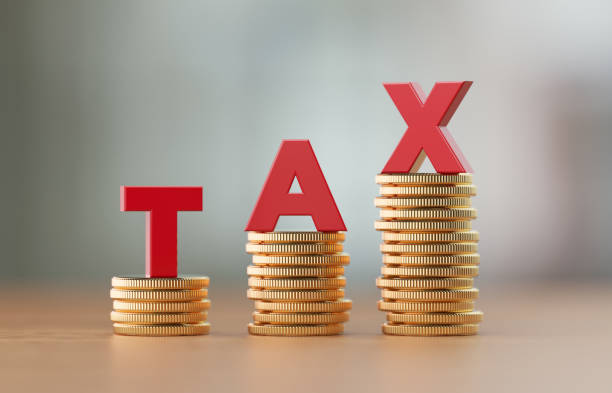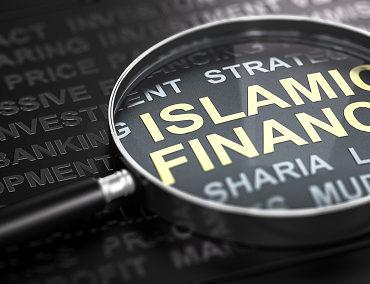DEPLOYING TAXATION AS A VIABLE INSTRUMENT FOR ECONOMIC RECOVERY IN A POST- PANDEMIC NIGERIA.

BY
UCHECHUKWU ERNEST AMAEFULE
1.0 INTRODUCTION
The Covid-19 pandemic has created immense fiscal challenges for individuals, businesses, and government alike.
Stay-at-home orders, business closures, and social distancing guidelines have severely impacted business income and activities, and in turn, employment and personal income. As policymakers look to the years ahead, much of the speed of the economic recovery depends on how much longer Covid-19 remains a significant public health threat. It is difficult for even public health experts to predict how long the pandemic will impact life as we know it, but even after the immediate crisis abates, the economic recovery is expected to take several years. Though there has been a decline in Covid-19 cases in recent months due to the production and availability of vaccines,
with activities returning back to normal and with businesses and institutions returning back to how they operated before the pandemic, however, the damage done by the pandemic on the economy remains an indelible one that will take years to recover from only with concerted efforts from the government and the people and with far-
reaching policies and instruments brought in to cushion the harm done by the pandemic on the economy.
One major instrument for recovery of the economy in the post-pandemic era is by taxation. This paper shall examine how deploying taxation can be a viable instrument for economic recovery in a post-pandemic Nigeria whilst creating an overview of the tax administration and regulations in Nigeria. In the final analysis, this paper shall provide a veritable tool for economic recovery and consequent growth in post-pandemic Nigeria through taxation as a channel.
2.0 OVERVIEW OF TAXATION IN NIGERIA (TAX SYSTEM, REGULATIONS AND
ADMINISTRATION)
Like other countries the main function of the Nigeria tax system is to generate revenue for the running of the
government at all levels and provide infrastructure to the public. Effective tax drive is achieved through an efficient tax administration and tax system reforms. Over the years, various laws in Nigeria have made provision for different tax in Nigeria and some of such includes: Companies Income Tax (CIT), which is tax imposed on profit of a company from all sources; Personal Income Tax(PIT), which is tax imposed on income of individuals
(employees), corporate sole or body of individuals, communities, families or trustees or executors of any settlement as the case may be; Value Added Tax(VAT), which is a tax charged on the sale of specified goods and services at the rate of 5%; Capital Gain Tax(CGT), which is charged where there is a disposal of assets;
Petroleum Profit Tax(PPT), which is tax imposed on income of companies in petroleum operation (upstream);
etc.
The Federal Inland Revenue Service (FIRS) is the body statutorily empowered to administer and enforce the various tax laws in Nigeria at the federal level. The States’ Government administer tax through the various State Boards of Internal Revenue, while the Local Government Revenue Committee of each State administers taxes at
the local government areas. The FIRS was established by the Federal Inland Revenue (Establishment) Act, 2017. It’s function is clearly spelt out in Section 8(1) (a) (b) and (c) of the Act.
3.0 TAXATION AS A VIABLE INSTRUMENT IN A POST-PANDEMIC NIGERIA.
In cushioning the harm done to the Nigerian economy by the Covid-19 pandemic and in setting Nigeria on the path of economic recovery, a major viable instrument is taxation. One way through taxation is by tax policies. In considering which of the tax policies will help speed the economic recovery, it is necessary to ask whether they would increase expenditure – on either investment or consumption – in the short term. Fiscal policies can be
introduced by the government (or relevant stakeholders) in cushioning the impact of the pandemic on businesses, households, healthcare, investment and consumption, and to maintain economic capacity. While these measures can often be referred to as ‘fiscal stimulus’ policies, they are better thought of as emergency, or initial responses.
These fiscal policies can elaborately be achieved through:
• SUPPORT MEASURE POLICIES FOR BUSINESSES.
Many businesses in the country and across the world are experiencing a sharp decline in liquidity,
hindering their ability to pay for wages, rents, intermediate goods, interest on debts and taxes. Tax measures focused on alleviating cash flow difficulties to help avoid escalating problems such as the laying-off of workers, temporary inability to pay suppliers or creditors, and, in the worst cases, closure or bankruptcy should be implemented. Loan guarantee schemes where the government guarantees all or part of the value of bank loans granted to eligible businesses are also to be considered. Other measures should
include small interest-free loans and cash grants. These schemes typically should target small businesses or businesses in the most affected sector.
Furthermore, one important tax policy tool is change to loss-offset provision. Some countries introduced
or implemented measures allowing loss carry-over for the 2020 tax year, which allowed taxpayers to carry back their 2020 tax losses against profits earned in previous fiscal years. Same can be implemented in Nigeria by the relevant tax stakeholders to help cushion the effect done by the pandemic to business in the country. Another way would be through acceleration of tax refunds (VAT and other taxes). More flexible tax debt repayment plans should be introduced. One-third of countries in the world like Korea and New Zealand in response to the pandemic have implemented this policy. Nigeria can take a cue from such policy.
• SUPPORT MEASURE POLICIES FOR HOUSEHOLDS.
Since the outbreak of the pandemic, many OECD(Organization for Economic Corporation and Development) and G20 countries have introduced measures to enhance households’ cash flow through taxation. They have extended tax filing deadlines, tax payment deferrals or extended payment plans for households unable to make their tax payments. These measures help cushion income losses for many households/workers and act as automatic stabilizers. Given the nature of the pandemic, many of these countries have taken steps to expand these measures to cover groups or cases that were not covered previously (independent workers, families with unexpected caring needs) to simplify access and make increase of economic protection. This policy can be a viable one for economic recovery in a post-pandemic Nigeria most especially pertaining to households in the country.
• SUPPORT MEASURE POLICIES FOR INVESTMENT AND CONSUMPTION.
In response to the crisis of the pandemic and for economic recovery in investment and consumption, Nigeria can implement investment support measures to include increases in thresholds for low-value asset write-offs as well as accelerated depreciation. Waivers can be included on import tax for manufacturing
companies which will greatly help kick-back investment and production from the quagmire the pandemic
has left it.
Nigeria can further implement measures to support consumption through reductions in standard and reduced VAT rates. For instance in countries like Jamaica and Kenya, they lowered their standard VAT rates in order to support consumption.
• SUPPORT MEASURE POLICIES FOR THE HEALTHCARE SECTOR.
One viable way in using taxation for economy recovery in post-pandemic Nigeria is through support measures for healthcare sectors considering the fact that a major sector that was hit very hard during the pandemic all over the world was the health sector. The pandemic exposed both the vulnerability of the
health sector most especially in Nigeria, and also the importance of the health sector in the country. The government can through taxation introduce measures to facilitate imports on medical inputs to tackle
health related issues relating to not just Covid-19, but other related diseases and for the importation of vaccines to help fight the ravaging pandemic. A common measure is through temporary removal or reduction of import duties on medicine and health devices and equipment.
Furthermore, in response to economic recovery, there is need to re-evaluate many short-term measures to boost
economic dynamism in post-pandemic Nigeria. The removal of short term measures should help avoid spikes on
tax liabilities. The removal of measures such as tax deferrals should ensure that where tax payments are deferred, large tax liabilities do not generate cliff-edges that could result in solvency for recovering businesses and jeopardize recovery. This could be achieved by spreading tax payments over several tax years, averaging tax
bases across several years, and ensuring that carry-forward provisions are in place for corporate taxes.
Going further, the revenue generated nationally from taxes annually can never be underestimated. According to statistics, despite the pandemic, Nigeria recorded a total tax collection of about 8.8 trillion naira in 2020
translating to tax to GDP ratio of 6.1%. Total taxes collected include oil and non-oil tax plus taxes collected by states. As at 2019, Nigeria had a nominal GDP of 145.6 trillion Naira11. This is according to data collected from the FG and States taxes for 2019. In that year, the total transaction base for VAT in the country was 23.77 trillion naira or 16.2% of the GDP. Also, 1,517.51 billion was collected as corporate tax on that year. Nigeria collected a total non-oil taxes of 3,548.56 billion which comprises of 1,517.51 billion (Corporate Taxes), 1,188.85 billion
(VAT), 792 billion (Customs, Import, Fees and Excise Duties) and total oil taxes and royalties up to 4 trillion naira. According to the Bureau of Statistics, State governments collected a total taxes of 1,334 billion which
includes PAYE(809.23 billion), Direct Assessment (47.6 billion), Road Taxes (30.2 billion) other taxes (223.4 billion) and MDE revenues of 221.5 billion.
However, despite the 6.1% tax to GDP ratio as at 2020, it represents one of the lowest in the world as compared to most developed counties in the world with average tax to GDP ratio of about 32.9%. France, one of the OECD countries has a tax to GDP ratio of over 46%.
Nigeria has generated a sum of 496.39 billion revenue from Value Added Tax (VAT) already in the first quarter of 2021, a surge of 52.93% year-on-year compared to 324.58 billion recorded in the corresponding period of 2020.The country has also generated the sum of 864.72 billion as company income taxes in the first half of the
year(H1 2021) representing a 57.8% achievement rate13. These statistics proves the large revenue accrual that taxation brings to a nation’s economy. If Nigeria can increase it’s tax to GDP ratio in 2021, it can be a viable tool
for economic recovery and development in a post-pandemic Nigeria considering the large revenue benefits that
comes from taxation.
4.0 CONCLUSION.
In conclusion, taxation plays a key role in the economy. With the economic harm and the quagmire the economies across the world are currently, a viable tool for economic recovery is through taxation. This can be achieved through tax policies/measures which should cut across – businesses, households, health sectors, investment and
consumption. Taxation can also be deployed as an instrument for economic recovery in post-pandemic Nigeria
by the government and relevant tax stakeholders increasing the tax to GDP ratio of the country to at least match up with that of most countries of the world. Through this channel, an economically-buoyant post-pandemic
Nigeria can be assured through taxation.
Lawyard is a legal media and services platform that provides enlightenment and access to legal services to members of the public (individuals and businesses) while also availing lawyers of needed information on new trends and resources in various areas of legal practice.













